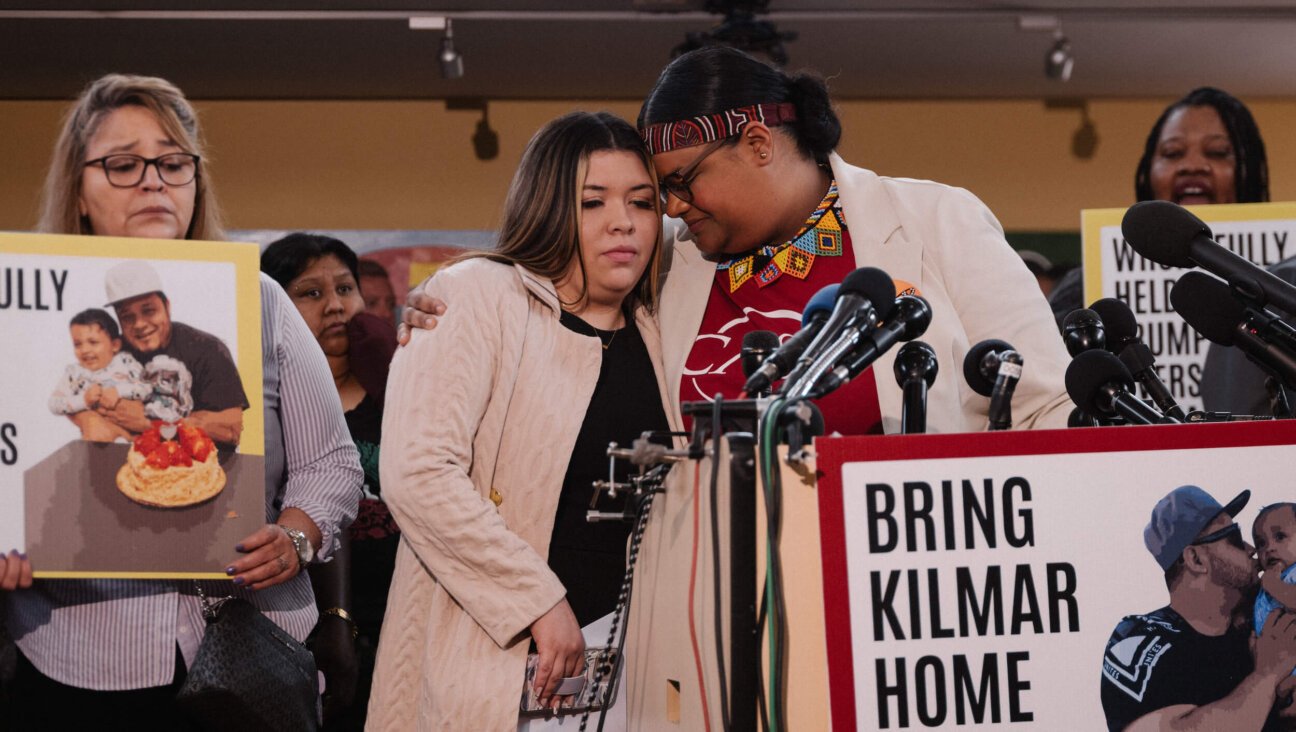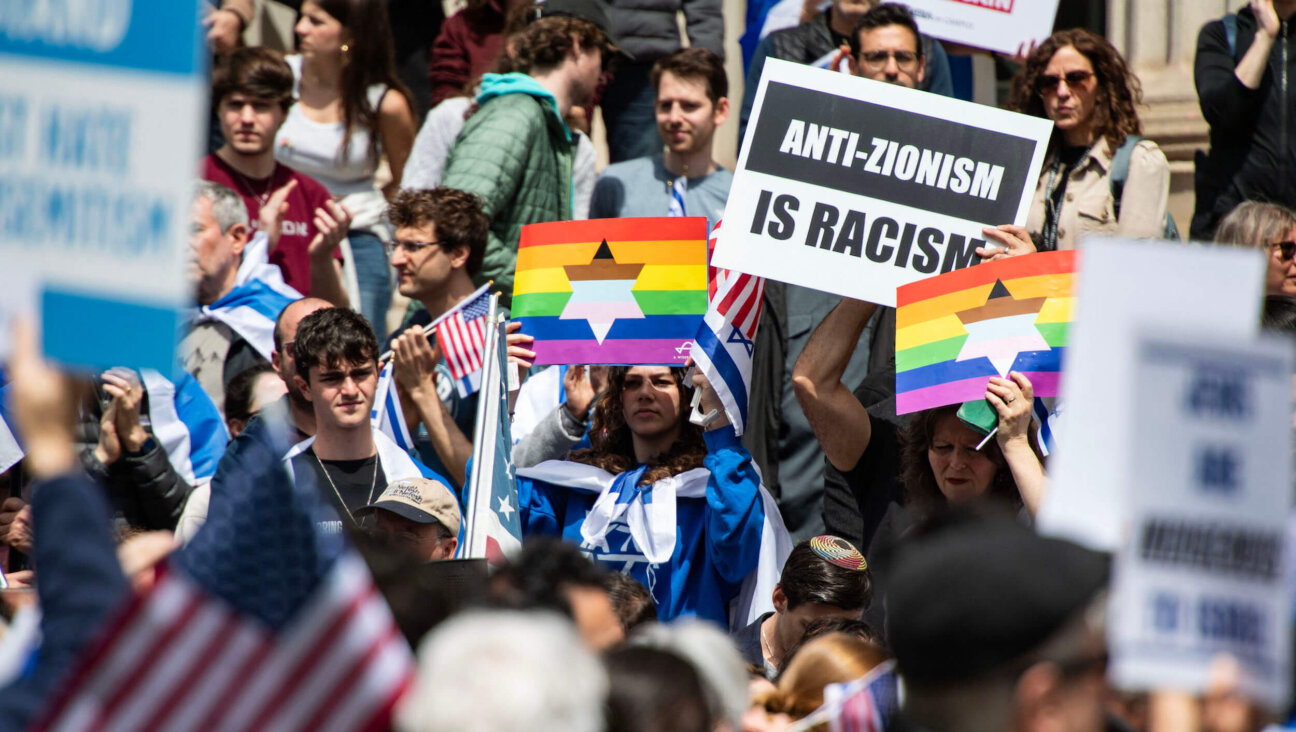A Terrorist Who Was Not Alone
Waves of shock and alarm have been rolling through Israel in the wake of the November 1 arraignment of a West Bank settler, Florida-born Yaacov “Jack” Teitel, on murder, assault and weapons charges stretching back over 12 years. Police and other officials call it the latest case of the elusive malady known as Jewish terrorism.
Security sources tell reporters that the case is unusual, perhaps unique, because of the suspect’s apparent ability to operate undetected for years, executing a string of well-planned attacks seemingly single-handedly. Also unusual is his wide range of alleged targets: not just Arabs but also left-wing Jews, Jews practicing Christianity and possibly gays.
The case has prompted a flurry of Israeli soul-searching and finger-pointing. Liberals claim an atmosphere of messianic religious nationalism makes West Bank settlements a breeding ground for extremist violence. Settlers accuse liberals and the media of demonizing an entire community because of isolated acts by a few misfits. Both sides ask why the security services took so long to nab Teitel.
If answers are scarce, that’s partly because memories are short. A quarter-century after the mass arrest of the notorious Jewish Underground in 1984, Jewish anti-Arab violence has become a routine aspect of West Bank unrest, yet each new case somehow comes as a surprise. True, it’s not nearly as widespread or deadly as Palestinian anti-Israeli terrorism, but it’s far more common than usually thought. What’s truly unusual about the Teitel case is that terrorism is called by its name, and that there’s been an arrest. Most assaults by settlers against Palestinians yield cursory investigations, no arrests and no public memory, except among the victims.
A study released in 1994 by the Israeli human rights group B’Tselem found that between 1988 and 1993, during the first intifada, 62 Palestinians were killed by settlers, compared with 117 Israeli civilians and 64 security personnel killed by Palestinians (plus 1,145 Palestinians killed by Israeli security forces). Examining 48 of those 62 Palestinian deaths, the study found 13 cases that went to trial, yielding one murder conviction. Another nine brought convictions on lesser offenses; the rest remained unresolved.
A government study released in 1984, led by Deputy Attorney General Yehudit Karp, examined 70 Palestinian complaints of attacks by settlers between May 1981 and April 1982. Fully 53 complaints ended in no government action, due to lack of evidence or “absence of public interest.” Karp charged that the army and government systematically overlooked or downplayed settler violence against Arabs.
In 2007, an Israeli rightist group, Honenu (“Pardon Us”), gave the government a list of Jewish security prisoners — mostly convicted terrorists — whose release it demanded in the event that Palestinian prisoners were freed in exchange for Gilad Shalit. The list included 37 names.
It was in 1984, the year of the Karp Report, that the concept of Jewish terrorism first received widespread notice, following the mass arrest of the so-called Jewish Underground. Their crimes included car-bomb attacks on three Palestinian mayors, leaving two severely maimed, plus attempted bombings of Arab commuter buses and an armed assault on an Islamic college campus, killing three students and wounding 40. In all 25 persons were arrested, mostly prominent leaders of the Gush Emunim settler movement. Most were sentenced to 20 years to life; nearly all were paroled or pardoned by 1990.
To most Israelis and foreign Middle East watchers, Jewish terrorism consists of the dimly remembered Jewish Underground, plus the 1994 killing of 29 Arab worshippers in Hebron by Brooklyn-born Baruch Goldstein and the assassination of Yitzhak Rabin in 1995.
But that’s only a fraction of the total. Many more were forgotten or barely noticed even at the time. During the 1984 Jewish Underground furor, two other, unrelated terror cells were rounded up, but they merged in the public mind into one confusing incident: a group of Kahanists convicted of bus bombings and shootings and a group of kabbalists convicted of trying to blow up the mosques on the Temple Mount.
Another organized group was rounded up in 2003, following a two-year spree of roadside shootings, killing eight, and the bombing of an Arab girls’ middle school that wounded 11. Nine men were eventually convicted, but the case unfolded too slowly to make a splash. More important, media coverage focused sympathetically on one suspect, Yitzhak Pass, whose 10-month-old daughter Shalhevet was murdered by a Palestinian sniper in 2001, sparking the group’s formation.
Several highly publicized crimes never registered with the public as terrorism because they were immediately dismissed by officials as acts of deranged individuals — even though the suspects were later found sane, convicted of terrorist acts and given life sentences. The best known: Alan Goodman, a Baltimore-born soldier who opened fire on the Temple Mount in 1982, killing two guards and wounding nine others; and Ami Popper, a Rishon Letziyon youth who gunned down seven Arab day-laborers at a bus stop in 1990. He’s since become a hero of the far right.
It’s an unpleasant story, but an essential one. If we don’t remember the past, we can’t understand the present. We often speak of the sacred duty of remembrance, but memories are tricky things.
Contact J.J. Goldberg at [email protected], and follow his blog at blogs.forward.com/jj-goldberg
The Forward is free to read, but it isn’t free to produce

I hope you appreciated this article. Before you go, I’d like to ask you to please support the Forward.
Now more than ever, American Jews need independent news they can trust, with reporting driven by truth, not ideology. We serve you, not any ideological agenda.
At a time when other newsrooms are closing or cutting back, the Forward has removed its paywall and invested additional resources to report on the ground from Israel and around the U.S. on the impact of the war, rising antisemitism and polarized discourse.
This is a great time to support independent Jewish journalism you rely on. Make a Passover gift today!
— Rachel Fishman Feddersen, Publisher and CEO
Most Popular
- 1

Opinion My Jewish moms group ousted me because I work for J Street. Is this what communal life has come to?
- 2

Fast Forward Suspected arsonist intended to beat Gov. Josh Shapiro with a sledgehammer, investigators say
- 3

Fast Forward How Coke’s Passover recipe sparked an antisemitic conspiracy theory
- 4

Politics Meet America’s potential first Jewish second family: Josh Shapiro, Lori, and their 4 kids
In Case You Missed It
-

News Student protesters being deported are not ‘martyrs and heroes,’ says former antisemitism envoy
-

Opinion This Nazi-era story shows why Trump won’t fix a terrifying deportation mistake
-

Opinion I operate a small Judaica business. Trump’s tariffs are going to squelch Jewish innovation.
-

Fast Forward Language apps are putting Hebrew school in teens’ back pockets. But do they work?
-
Shop the Forward Store
100% of profits support our journalism
Republish This Story
Please read before republishing
We’re happy to make this story available to republish for free, unless it originated with JTA, Haaretz or another publication (as indicated on the article) and as long as you follow our guidelines.
You must comply with the following:
- Credit the Forward
- Retain our pixel
- Preserve our canonical link in Google search
- Add a noindex tag in Google search
See our full guidelines for more information, and this guide for detail about canonical URLs.
To republish, copy the HTML by clicking on the yellow button to the right; it includes our tracking pixel, all paragraph styles and hyperlinks, the author byline and credit to the Forward. It does not include images; to avoid copyright violations, you must add them manually, following our guidelines. Please email us at [email protected], subject line “republish,” with any questions or to let us know what stories you’re picking up.















